Urinary Incontinence Is Common and Treatable

You may have urinary incontinence (UI). Embarrassing? Sure, sometimes. But UI is common in men, with about 1 in 4 experiencing it at some point in their lives. And there are treatments available that work. Almost everyone is a good candidate for one solution or another. But only 1 in 5 men with bladder leakage seeks medical care.
The challenge is finding the solution for you. Learn more about the causes of urinary incontinence in men, helpful solutions to ease the consequences, and treatments that can greatly reduce and in some cases eliminate accidents.
Stress, Urge, & Overflow Incontinence
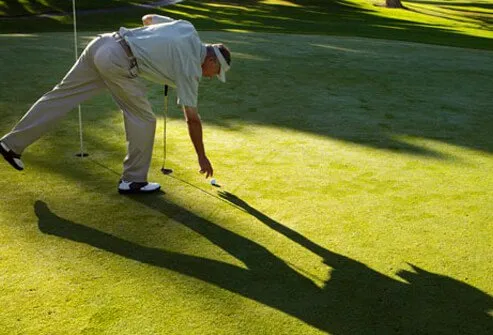
Different kinds of incontinence are caused by different things:
- Stress incontinence. This is caused by pressure against your bladder and may follow prostate surgery. The cause of the pressure might be a hardy laugh, a cough, a sneeze, or an attempt to lift a heavy weight.
- Urge incontinence. This comes from an urge to relieve your bladder so overwhelming that you fail to reach the toilet in time. Men with diabetes, Parkinson's disease, and dementia are more likely to develop urge incontinence.
- Overflow incontinence. A man with an enlarged prostate (BPH) may have difficulty fully eliminating urine. This can lead to small amounts of urine overflowing from a constantly full bladder.
- Prostate gland problems are the most common causes of incontinence in men.
Why Does Male Incontinence Happen? Causes

In men, incontinence can be brought on by medical conditions like an enlarged prostate, diabetes, and Parkinson's disease. It can be common after some types of prostate surgery, too. Sometimes it can develop for reasons we don't completely understand, like overactive bladder (OAB). To get you the right treatment, your doctor will need to find the cause of your problem.
Easing Off on Liquids: Is it a Good Idea?

Easing off on liquids a few hours before bed works for some guys. They may also space out their drinks throughout the day.
If you try to control your water intake though, be careful not to overdo it. Dehydration can sometimes lead to problems that make your leakage worse. You may even be asked by your medical team to drink more water.
The American Urological Association recommends drinking about two liters of water a day—about 6 to 8 glasses—spread evenly throughout the day to prevent future episodes. It also notes that you won't do any good by drinking even more than you need. During hot summer days, make sure you are drinking enough water to stay hydrated when you are thirsty.
Go Easy on the Drinks

It depends from guy to guy, but some find drinks can trigger incontinence. You may be sensitive to carbonated beverages like soda, caffeinated drinks like coffee and tea, and alcohol. Studies suggest not everyone is bothered by these, though. If you have UI symptoms, try to remember if you've had any of these beverages recently.
Stick to a Healthy Diet

To prevent UI, be careful about your food choices. In several studies, urinary leakage has been tied to symptoms of obesity. One study found that men with metabolic syndrome (biochemical and physiological abnormalities associated with the development of cardiovascular disease and type 2 diabetes) have larger prostates, a leading cause of UI. Men with both metabolic syndrome and enlarged prostates bear an 80% greater risk of experiencing a sudden, intense urge to urinate, often during the night.
Why Relaxation Can Help
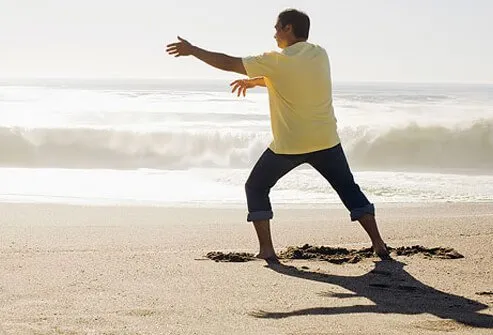
When you experience stress, your muscles clench up. If your pelvic floor muscles tighten, this can place pressure on your bladder. Learning to relax can help.
Relaxing can be hard for a lot of people. Some find these activities help them relax:
- Gardening
- Painting
- Woodwork
- Learning or playing a musical instrument
- Yoga
- Meditations, including progressive muscle relaxation
- Deep breathing exercises
Bladder Training: What Is It?
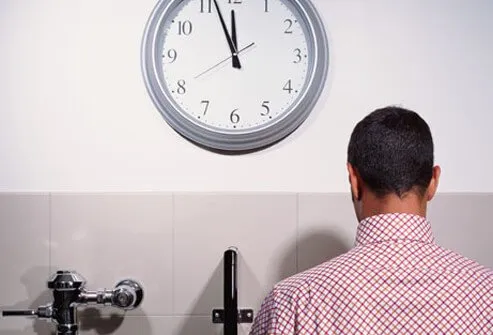
Bladder training is a system you can use to ease urge incontinence. It is important to work with the help of your medical team to develop a bladder training program that fits your needs. Your health professionals will teach you ways to gradually lengthen the time between bathroom trips. These activities may include pelvic floor exercises and distraction techniques.
Fluid Charts: Keeping Track

To better manage your symptoms, your doctor might ask you to keep a fluid chart or bladder diary. Using this journal, you carefully track all the liquids you take in, as well as how often you drink them and how frequently you visit the bathroom. This information can help your doctor choose the right treatment.
Strengthen Critical Muscles

Imagine layers of muscle that attached to form a band around your lower pelvis, from your pubic bone to your tailbone. That is your pelvic floor. This band of muscles helps control your body's bladder, as well as your bowel and sexual functions. Your doctor may encourage you to perform daily Kegel exercises or other movements to strengthen muscles associated with your bladder.
Consider Using Pads

Some men leak now and then, even after therapy. Pads and adult diapers can protect your clothing, skin, and furniture from surprise leaks. You may feel more secure knowing you are prepared, too.
Choices in Protective Underwear and Briefs
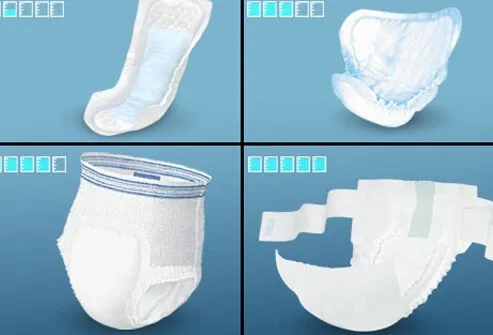
When it comes to UI, men have many products available for dealing with occasional leaks.
- Drip collectors wick up moisture if you have occasional leaks
- Incontinence shields go inside your usual underwear to protect against light, infrequent leaks
- Absorbent underwear is built with padding in the right places to keep leaks off your skin and clothes. These may or may not be washable, so check the label
- Pull-ups are disposable briefs pulled on and off like typical underwear and work for heavy leaks
- Diapers with tabs are disposable options that stand up to heavy leaks
Biofeedback
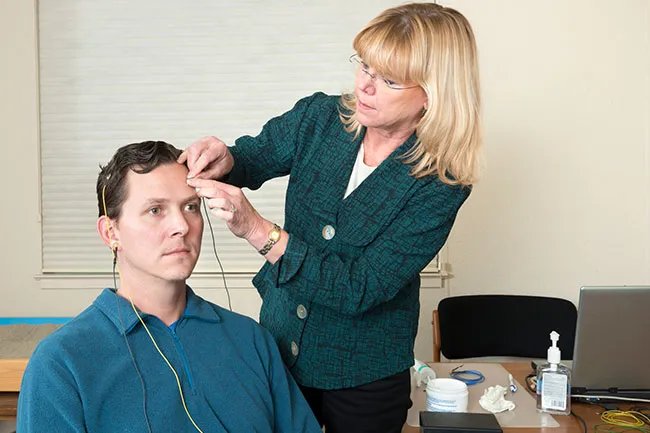
Biofeedback may help by supporting your pelvic floor exercises. For several decades, biofeedback has been used to make people aware of their control over otherwise unconscious body processes. Many people do not know about their pelvic floor. Biofeedback can teach you about your pelvic floor muscles and how they contract and relax.
Medicines for Urinary Incontinence in Men

If other options don't pan out, you may decide to try medicine. There are several medications available to discuss with your doctor. Some pills can relax your bladder. Your doctor may relax your bladder by injecting it with Botox. Other medicines can strengthen the muscles of your urethra that control when you go. Some drugs help your kidneys produce less urine at night.
What Are the Surgery Options?

Men with stress urinary incontinence may benefit from surgery. Two options are recommended by the American Urological Association:
- An artificial sphincter allows you to control when you relieve your bladder. Using surgery, a saline-filled balloon is inserted below your belly and above your bladder, and a cuff is placed around your urethra. By pressing a button (the pump), this device opens your urethra, allowing you to urinate. The device is ready to be reused in about three minutes.
- Another surgical option for men with urinary incontinence is the male sling. Surgeons use a synthetic mesh band to support the muscles of your urethra and sphincter. These are usually more effective in mild to moderate cases.
Products and Devices That Help

Besides protective pads and surgery, there are other products that work for some men. Catheters are devices, usually tubes, used to drain your bladder. They come in different types for occasional, intermittent, or continuous use. There are three main types used for men:
- Intermittent self-catheters can be inserted when you choose to use them. These are removed from your body when you aren't using them. You don't need to wear a bag with this type.
- Indwelling catheters remain inside your bladder, and require you to wear a bag. These are usually inserted through your urethra, but can be inserted directly into your bladder in some cases.
- Condom catheters don't use a tube. Instead of a tube, a device with the shape of a condom is placed on the penis, which can then drain urine to a bag throughout the day.
How to Prepare for Awkward Moments

To avoid accidents, you will want to develop your "bathroom sense" when you shop, dine, or travel. Keep an eye out for the nearest restroom, and plan your route to it in case you need to get there quickly. Keep some extra pads in the trunk for when you need them, along with an extra set of clothes.
Be Persistent

Your first medical treatment sometimes fails. With some conditions like UI, there are several causes that may need different approaches. Keep trying. With the help of your doctor, there is likely to be a solution for you.
Urinary Incontinence in Men: Types, Solutions, Home Remedies, & Treatments
This tool does not provide medical advice. See additional information: 
© 1996-2024 WebMD, LLC. All rights reserved.
